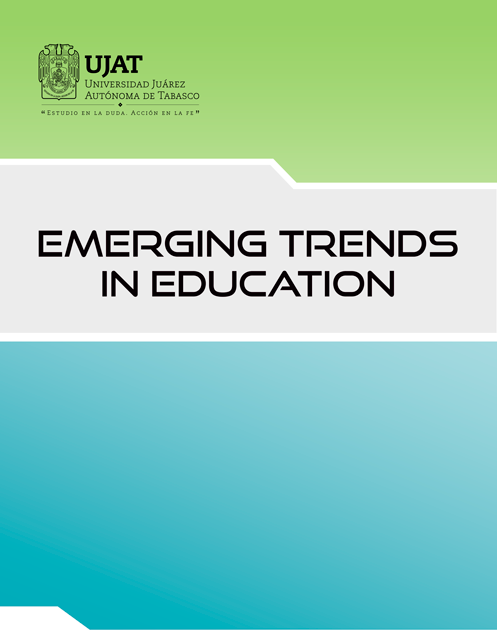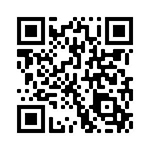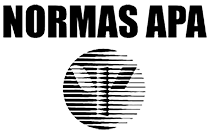Soft skills and web 2.0 in high school education
DOI:
https://doi.org/10.19136/etie.a5n10.5078Abstract
The globalization of society combines technical aspects that come from technology with different skills for the development of an integral education for life, so it is important that the teaching-learning process is oriented not only to the development of hard or technical skills but also of soft skills. The methodology used consisted of a bibliographic review, documents that allowed the discussion to raise the importance of the development of skills from an early age. The contribution is considered from the need to implement strategies to enhance soft skills from web 2. 0, because it is an issue that influences the academic field in a globalized world that will have an impact on the different areas of life for which they must be prepared and provide solutions to the challenges that the XXI century society poses either in the educational, family, social and/or labor area, thus the objective of the work is to know the importance of soft skills from basic education at the secondary level, in the teaching-learning through Web 2.0 tools.
Keywords: Soft skills; hard skills; teens; Web 2.0 tools; technology.
References
Banco Interamericano de Desarrollo [BID]. (2017). Importancia de las habilidades blandas en las PYMEs. https://acortar.link/Mo58ne
Banco Interamericano de Desarrollo [BID]. (2017). Aprender Mejor. Políticas públicas para el desarrollo de habilidades. https://acortar.link/aSHNfo
Bassi, M., et.al. (2012). Desconectado BID Educación. BID Educación. https://cutt.ly/X1vmxjb
Berger, P. L. (2006). Introducción a la sociología. Limusa.
Coll, C. (2012). Aprender y enseñar con TIC expectativas, realidad y potencialidades. https://cutt.ly/UM6wpR0
Cordero-Clavijo, A. M., Córdova-Tobar, N.J., Moreira-Sarmiento, M.C., & Quevedo-Jumbo, J.M. (2020). Habilidades blandas, un factor de competitividad en el perfil del servidor público. Polo del Conocimiento 5 (5), 41-63.
Corpas, A. M. (2016). La educación informal en el aprendizaje del inglés como lengua extranjera. Revista Didáctica de la lengua y la literatura. (24) 1, 68-91. https://cutt.ly/11vWHBx
Eichholz, J. (2015). Capacidad adaptativa. Como las organizaciones pueden sobrevivir y desarrollarse en un mundo cambiante. LID Editorial.
Fidalgo, A. (17-02-2008). Interpretando a Vygotsky. Las redes sociales y el aprendizaje informal. Innovación Educativa. https://xurl.es/ho7px
Foro Económico Mundial. (2016). ¿Cuáles son las habilidades del siglo 21 que todos los estudiantes necesitan? https://cutt.ly/6M57dpH
Gómez, L., Reyes, M., & Molina, J. (2015). El futuro de la Reforma Educativa está en el aula. INEE. https://xurl.es/5c7h8
Gómez, M., Manrique, B., & Gasca, G. (2015). Propuesta de evaluación de habilidades blandas en ingeniería de software a través de proyectos universidad–empresa. Revista Educación en ingeniería, 10 (19), 131-140.
Guerra, S. (2019). Una revisión panorámica al entrenamiento de las habilidades blandas en estudiantes universitarios. Psicología Escolar e Educacional. (23) 1, 1-11. https://doi.org/d8mf
Heckman, J., & Kautz, T. (2012). Hard evidence on soft skills. Cambridge, MA: National Bureau of Economic Research, NBER Working Paper Series.
Instituto Nacional de Estadística y Geografía [INEGI]. (2021). Encuesta Nacional de Ocupación y Empleo (ENOE), Población de 15 años y más de edad. https://cutt.ly/XM57I03
Instituto Mexicano de la Juventud (2017). Desarrollo de habilidades socioemocionales para prevenir deserción escolar. https://xurl. es/k38e5
Kaaranen, H. (2006). Redes Umts. Alfaomega. Latorre, M. (2018). Historia de las Web. Universidad Marcelino Champagnat. https://cutt.ly/y1bdtOj
Martín, M., Hernández-Suárez, C.A., & Mendoza-Lizcano, S.M. (2017). Ambientes de aprendizaje basados en herramientas web para el Desarrollo de competencias TIC en la docencia. Perspectivas, (2) 1, 97-104.
Matus, O., & Gutiérrez, A. (2015). Habilidades Blandas: Una ventaja competitiva en la formación tecnológica. GINT Journal of Industrial Neo-Technologies, 32-40. https://xurl.es/9y42e
Medina, D., & Nagamine, M. (2019). Estrategias de aprendizaje autónomo en la comprensión lectora de estudiantes de secundaria. Propósitos y Representaciones, 7 (2), 134-146. https://doi.org/d5h4
Observatorio Latinoamericano de Políticas Educativas. (2017). OCDE, Banco Mundial y BID: El lobby por un currículo Global del siglo XXI. https://cutt.ly/cM55ylG
Ortega, C. (2017). Desarrollo de habilidades. Universidad Ecotec. https://cutt.ly/M1bffki
Ortega, I., Soto, I., & Cerdán, C. (2016). Generación Z. El último salto generacional. https://xurl.es/2dtdl
Ortega, T. (2016). Desenredando la Conversación sobre habilidades blandas. Informe de Educación. https://cutt.ly/9M6r8zN
Pages, C., & Melguizo, A. (2017). En América latina las empresas buscan trabajadores mejor cualificados. https://cutt.ly/ gM55hpF
Pandey, M., & Pandey, P. (2015). Global Employability of Unemployed Youth through Soft International Journal of Multidisciplinary Approach and Studies. https://xurl.es/sy1hl
Raciti, P. (2015). La medición de las competencias transversales en Colombia: una propuesta metodológica.EuroSocial. Programa para la cohesión Social en América Latina. https://cutt.ly/1M55Re9
Rubilar, C. (2015). El Desafío de las Competencias Blandas. https://xurl.es/9ocy0
Secretaría de Educación Pública [SEP]. (2017). Planes y programas de estudio. https://cutt.ly/w1bgJoY
Soffel, J. (2016). ¿Cuáles son las habilidades que todos los estudiantes necesitan para el 2020?. https://cutt.ly/KM551U4
Tacca Huamán, D.R., Cuarez Cordero, R., & Quispe Huaycho, R. (2020). Habilidades Sociales, Autoconcepto y Autoestima en Adolescentes Peruanos de Educación Secundaria, International Journal of Sociology of Education, 9 (3), 293-324.
United Nations International Children ́s Emergency Fund [UNICEF]. (01-09-2021). Derecho a estudiar. UNICEF trabaja para que haya educación secundaria en cada rincón del país. Clarín digital. https://cutt.ly/51bk9no
Vargas, F., & Carzoglio, L. (2017). La brecha de habilidades para el trabajo en América Latina: Revisión y análisis en la región. Oficina Internacional del Trabajo CINTERFOR. https://cutt.ly/GM56rBS
Vigotsky, L. S. (1979). El desarrollo de los procesos psicológicos superiores. Grijalbo.
Downloads
Published
Issue
Section
License
Copyright (c) 2023 Emerging Trends in Education

This work is licensed under a Creative Commons Attribution-NonCommercial-NoDerivatives 4.0 International License.





























